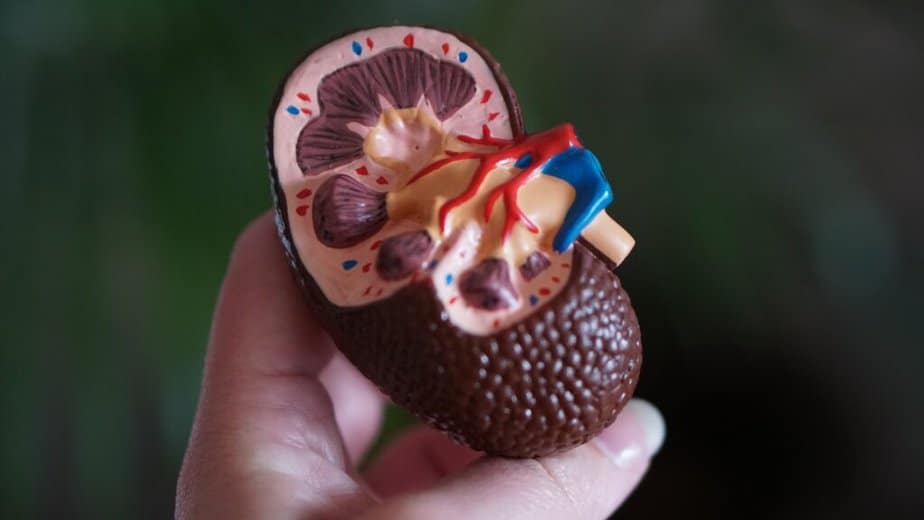Kidneys are organs in the body that filter blood to remove waste, toxins, and excess fluids. When someone has chronic kidney disease (CKD), damaged kidneys cannot filter blood as well as they should. Therefore, excess waste and toxins build up and can cause other health problems, such as heart disease and stroke. Now new research shows that omega-3s and kidney protection may be linked. Specifically, it shows that omega-3 fatty acids from seafood may reduce the risk of developing chronic kidney disease.

More than one in seven American adults is estimated to have chronic kidney disease. Patients with CKD can have serious health complications requiring dialysis or kidney transplants. However, prevention or management through diet, exercise, and maintaining a healthy weight can improve prognosis. Research published in the British Medical Journal associates omega-3 fatty acids with a protective effect from chronic kidney disease.
The Study
The authors pooled 19 studies from 12 countries, each conducted by a different research team and evaluated the association between omega-3 fatty acids and new cases of chronic kidney disease. Participants were between the ages of 49-77. This study focused on quantitative measurements of circulating omega-3. This is a more accurate evaluation than self-reported dietary intakes (a previously popular way of collecting the data for clinical trials).
Out of the 25,570 participants from all 19 cohorts, 19.3% developed chronic kidney disease. The diagnosis was chiefly based on the estimated glomerular filtration rate (eGFR), a measurement of how much blood the kidneys filter per minute. In brief, the authors captured the initial glomerular filtration rate at baseline and then again during follow-up visits. Lower values indicate more damage to the kidneys.
Results
The authors found a protective effect associated with three omega-3 fatty acids from seafood.
Overall, they associated higher levels of omega-3 fatty acids from seafood with an 8% lower risk of incident chronic kidney disease. Additionally, participants with total omega-3 fatty acid levels in the top twenty percent had a 13% lower risk of incident CKD compared with those in the bottom twenty percent.
Interestingly, this decreased risk was only associated with seafood-derived omega-3s and not omega-3s from plant-derived sources. This could be important for people on a vegetarian diet who mainly get their omega-3 from sources such as chia seeds, flax seeds, soy, and walnuts.

The effect of omega-3s on chronic kidney disease makes sense since omega-3s are good for heart health. Remember, the kidneys filter blood. If the heart doesn’t work well, the kidneys don’t get as much blood, which puts a strain on them. Markedly, omega-3s reduce triglycerides, and irregular heartbeat, slow plaque buildup, and help lower blood pressure – all things that reduce cardiovascular disease.
Although the results of this new study are exciting, it’s important to remember that associations, do not necessarily mean a causal relationship.
Some limitations of this study include differences in measurement methods among cohorts. The authors also note that nutrients contained in seafood other than omega-3s could not be discounted entirely. In particular, future work should measure omega-6 fatty acid levels, another fatty acid with beneficial effects.
Omega-3s in Diet
Most major health organizations recommend some fatty fish as part of a healthy diet due to its high omega-3 acid content. These include salmon, mackerel, albacore tuna, trout, and sardines. However, not all fish are created equal. Consumers should be cautious that certain types of fish such as swordfish and king mackerel contain high levels of mercury. These can be especially dangerous for children and pregnant women.
Another way to get enough omega-3s if you are not eating enough fish is through fatty acid supplements. (
The American Heart Association (AHA) recommends adults eat at least two servings a week (3 ounces of cooked or about ¾ cup of flaked fish) of fish rich in omega-3s. The Dietary Guidelines for Americans recommends 8-10 ounces or 2-3 servings. Overall, research indicates that consuming seafood rich in omega-3s as part of a balanced diet promotes heart health. Now, those at risk for chronic kidney disease may also want to consider adding certain types of fish to their diet.
Citation
Ong KL, Marklund M, Huang L, Rye KA, Hui N, Pan XF, Rebholz CM, Kim H, Steffen LM, van Westing AC, Geleijnse JM, Hoogeveen EK, Chen YY, Chien KL, Fretts AM, Lemaitre RN, Imamura F, Forouhi NG, Wareham NJ, Birukov A, Jäger S, Kuxhaus O, Schulze MB, de Mello VD, Tuomilehto J, Uusitupa M, Lindström J, Tintle N, Harris WS, Yamasaki K, Hirakawa Y, Ninomiya T, Tanaka T, Ferrucci L, Bandinelli S, Virtanen JK, Voutilainen A,
Jayasena T, Thalamuthu A, Poljak A, Bustamante S, Sachdev PS, Senn MK 2nd, Rich SS, Tsai MY, Wood AC, Laakso M, Lankinen M, Yang X, Sun L, Li H, Lin X, Nowak C, Ärnlöv J, Risérus U, Lind L, Le Goff M, Samieri C, Helmer C, Qian F, Micha R, Tin A, Köttgen A, de Boer IH, Siscovick DS, Mozaffarian D, Wu JH. Association of omega 3 polyunsaturated fatty acids with incident chronic kidney disease: pooled analysis of 19 cohorts. BMJ. 2023 Jan 18;380:e072909. doi: 10.1136/bmj-2022-072909. PMID: 36653033; PMCID: PMC9846698.
